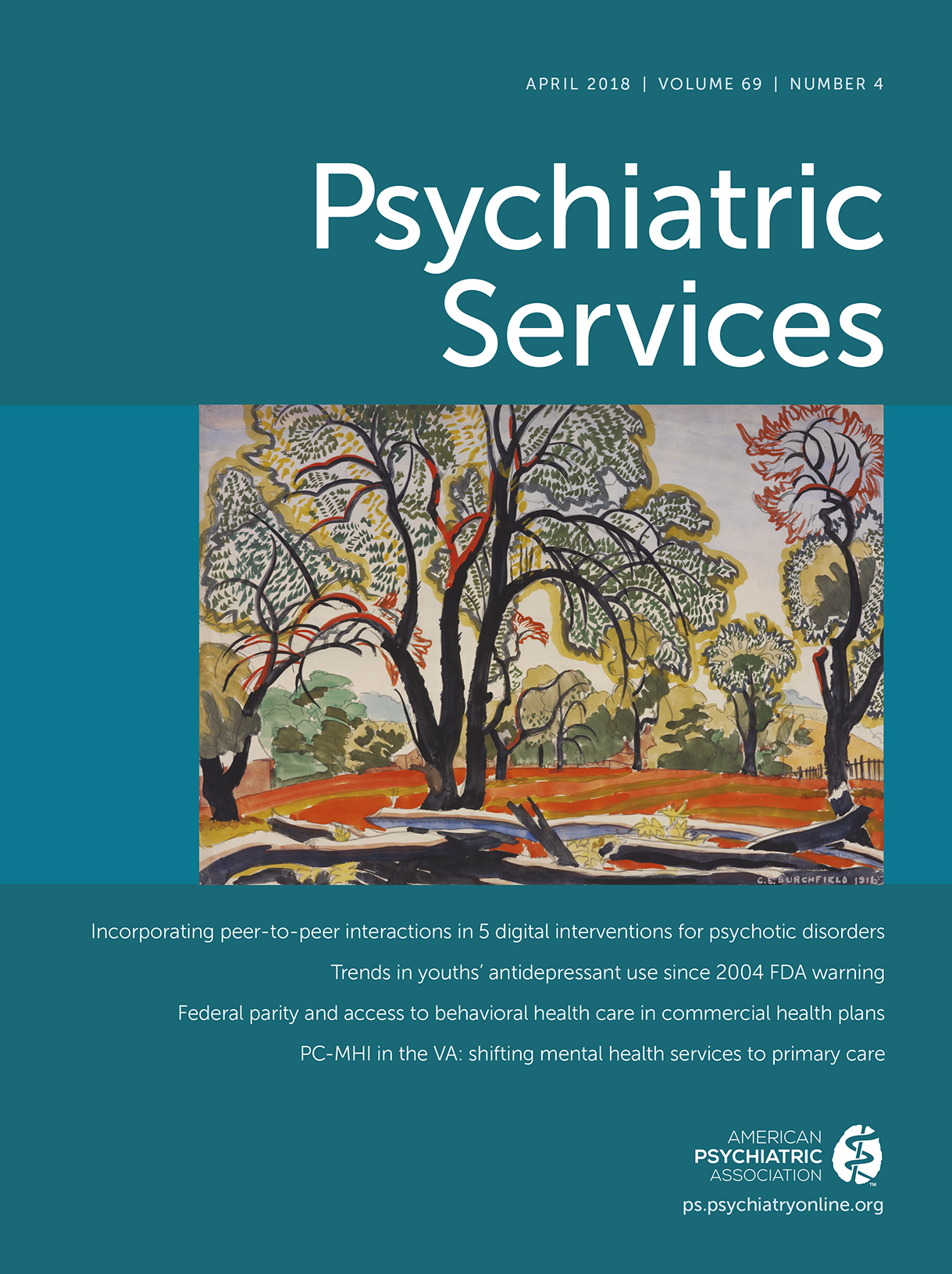Empowering People With Mental Illness in Workplace Settings
TO THE EDITOR: Mental illness stigma can impede the professional lives of people with mental illness by complicating their work routines, which can contribute to termination and difficulty with reemployment. Therefore, addressing stigmatizing attitudes from employers and colleagues is important to improve employment as well as workplace participation of people with mental illness (1). However, in addition to this kind of public stigma, self-stigma among employees with mental illness can introduce additional distress, which can contribute to both presenteeism and absenteeism in the workplace (2). These problems can in turn lead to financial difficulties, diminished well-being, and increased psychological distress among employees with mental illness (3), as well as to economic loss for employers.
Self-stigma is a process in which individuals with mental illness are aware of stereotypes, agree with them, apply them to themselves, and consequently may lose self-esteem and experience hopelessness, social withdrawal, and demoralization. Self-stigma is often accompanied by the anticipation of future discrimination, which leads to the avoidance of potentially threatening situations, including work. To avoid stigma, secrecy is common, which not only has negative psychosocial consequences (such as social isolation, feelings of shame, and anxiety) but also eliminates the possibility of obtaining reasonable accommodations. The common approach of targeting public stigma in order to improve workplace participation of employees with mental disorders is appropriate but may be insufficient. Interventions addressing self-stigma among employees with mental disorders are also needed.
Although effective interventions to reduce self-stigma have been developed (4), they have never been evaluated in workplace settings, and their impact on employee well-being and workplace participation remains unclear. Implementation at workplaces demands the consideration of setting-specific factors, including the risk of involuntary disclosure due to participation and potentially limited support by employers. To reduce the risk of involuntary disclosure, approaches that allow anonymity, such as webinars or individual coaching, might be superior to face-to-face group formats. However, given that existing programs to reduce self-stigma are generally based on peer support, adaptations need to be made with caution so as not to exclude the factor responsible for reductions in self-stigma. Employer support might be increased if benefits are clearly communicated and the intervention is cost-effective. One example of a short and potentially cost-effective intervention is “Honest, Open, Proud” (HOP), a peer-led group program supporting people with mental illness in their decision regarding whether to disclose their mental illness. HOP reduces stigma stress and may increase quality of life (5). To serve as a workplace self-stigma intervention, HOP was recently adapted as a self-administered guide for mental health professionals with current or past experiences of mental illness, and it is complemented by an anonymous Web-based peer support forum (for more information: https://www.ucl.ac.uk/pals/hop-mhp-project-0). Similar approaches may ensure confidentiality while including aspects of peer support.
1 : The effectiveness of interventions targeting the stigma of mental illness at the workplace: a systematic review. BMC Psychiatry 16:1, 2016Crossref, Medline, Google Scholar
2 : The relationship between anticipated stigma and work functioning for individuals with depression. Journal of Social and Clinical Psychology 35:883–897, 2016Crossref, Google Scholar
3 : The mental health benefits of employment: results of a systematic meta-review. Australasian Psychiatry 24:331–336, 2016Crossref, Medline, Google Scholar
4 : Interventions targeting mental health self-stigma: a review and comparison. Psychiatric Rehabilitation Journal 38:171–178, 2015Crossref, Medline, Google Scholar
5 : Honest, Open, Proud for adolescents with mental illness: pilot randomized controlled trial. Journal of Child Psychology and Psychiatry (Epub ahead of print, Dec 5, 2017). doi:10.1111/jcpp.12853Google Scholar



